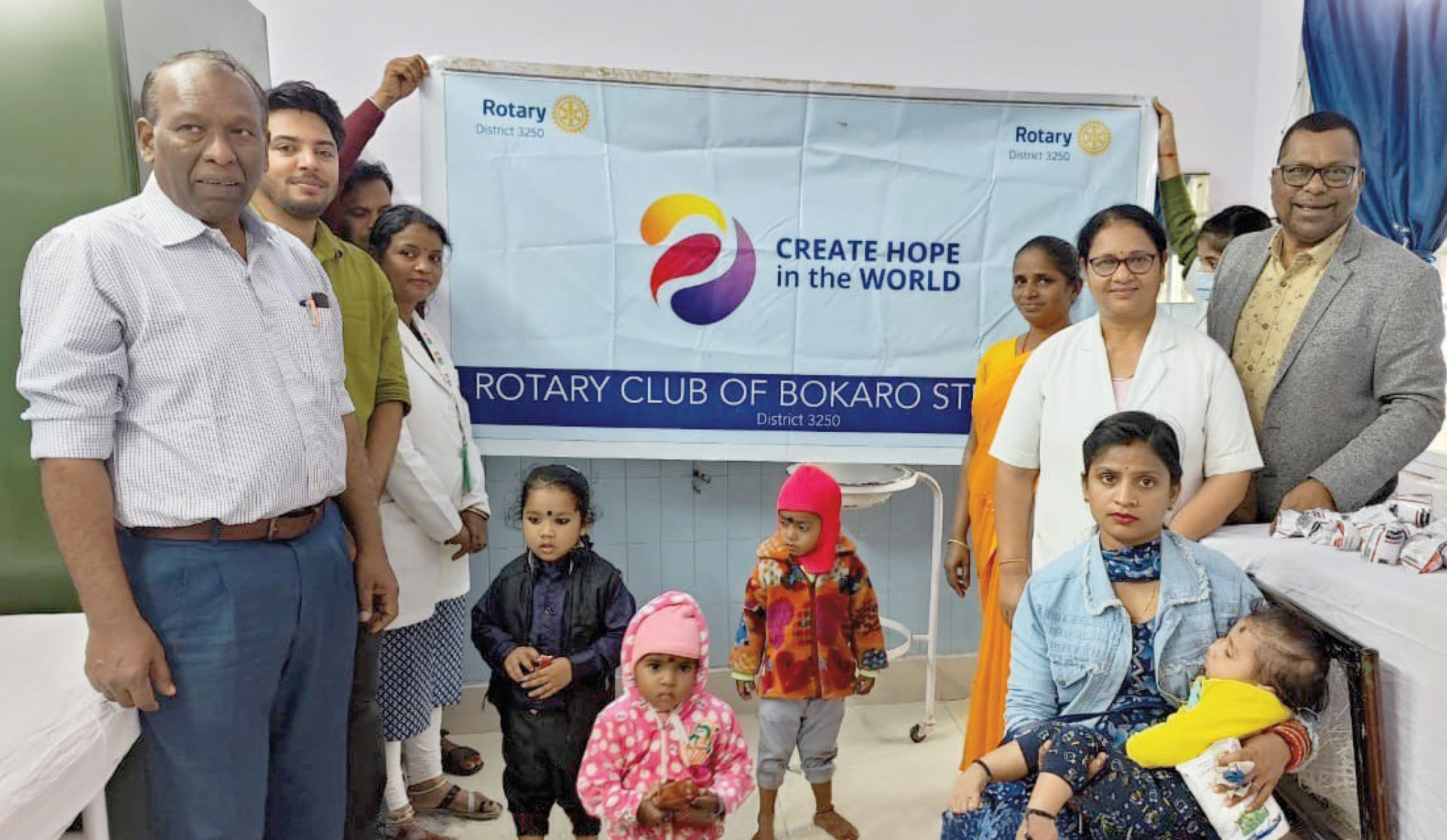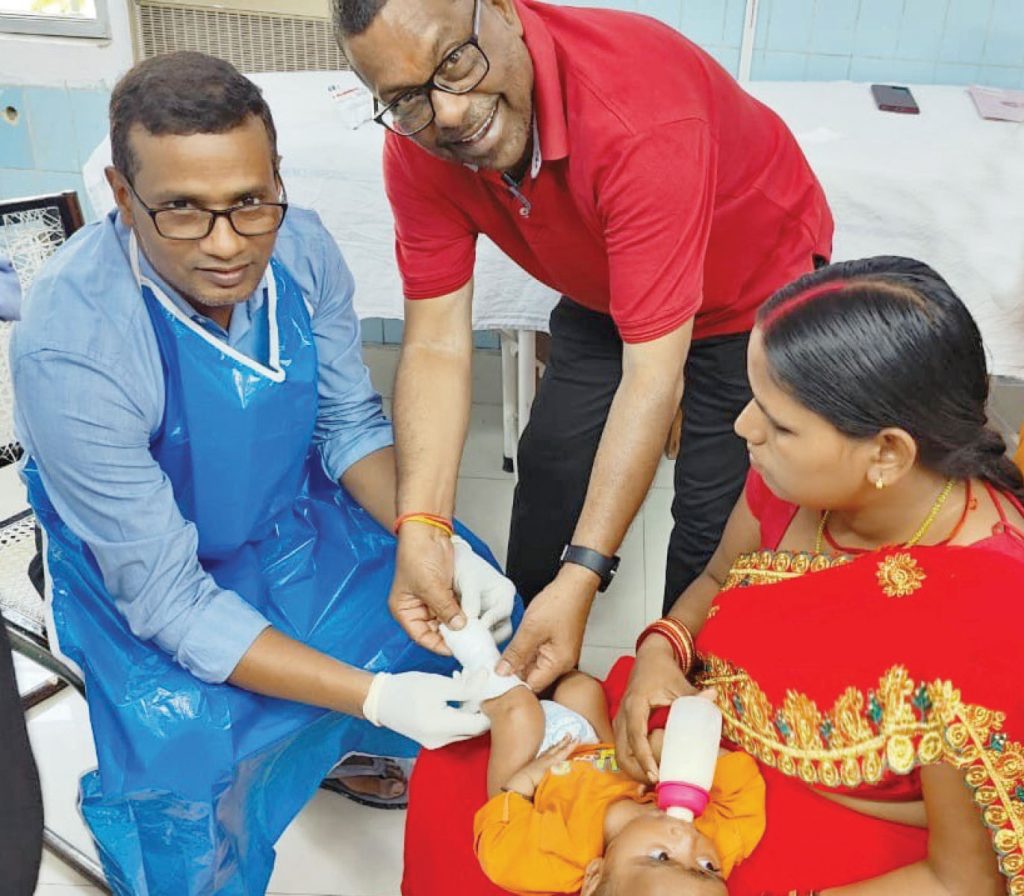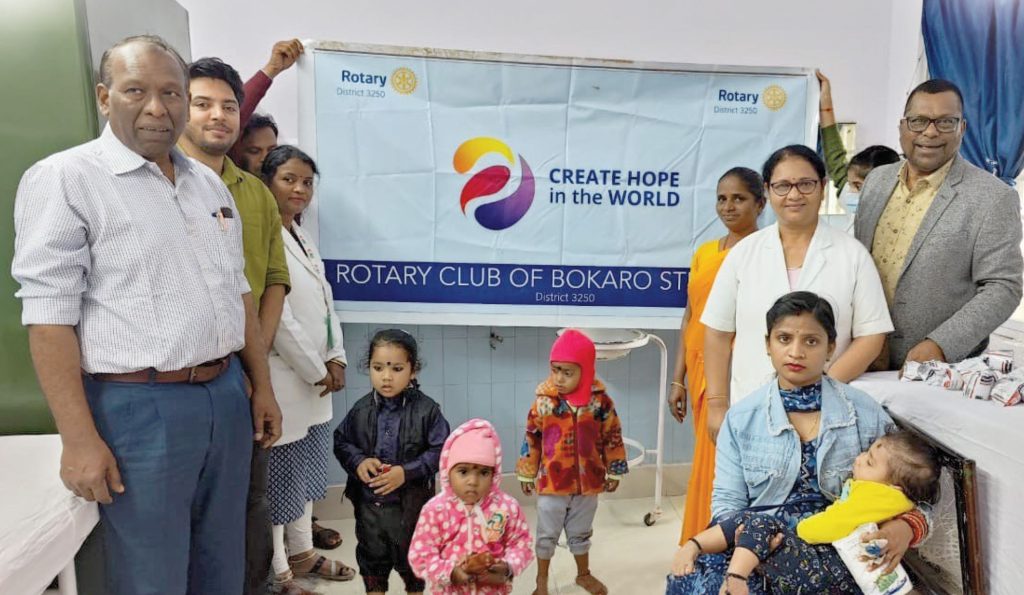Couple Ravi Bawri and Tusu Devi from Seetaldih village at Chandankiyari taluk, 23km from Bokaro, Jharkhand, found to their dismay that their newborn had clubfoot, a congenital foot deformity in which the limb is curved inwards with toes glued together. “After a lengthy treatment at the Bokaro General Hospital with 5–6 weeks of plaster cast on the deformed foot, and regular check-up by doctors, the child is totally cured of clubfoot,” says Ghanshyam Dass, president, RC Bokaro Steel City, RID 3250.


The parents are a happy lot. “We are thankful to the Rotary club which has arranged the treatment and the doctors for the painless recovery of my child Ritesh who has got a normal foot now,” says Bawri. So far, 50 infants were treated for clubfoot since July last year and “none required a surgery. We will do the procedure for 10 more babies for this year,” says Dass. When Cure International India Trust, an NGO fighting clubfoot syndrome, approached the club for sponsorship to treat babies with this birth defect, “we tied up with the Bokaro General Hospital who agreed to do free treatment and surgery.” Dass and club member, Dr Rajdeep, took care of logistics to facilitate the treatment of 2–3 weeks old infants, while a four-member doctor team led by Dr N D Kachchap examined each child, fitted and removed the plaster cast each time for 7–8 weeks, and took a call on the need for surgery or not after an “elaborate inspection of the deformed foot.” From Cure Trust, Suchita Lakra coordinated with the club and hospital for a hassle-free experience for the parents and their child patients.

In the first stage, plaster cast is applied to the clubfoot for 7–8 weeks, and “each week a new one is replaced after examination by doctors” After this stage, if the foot is not cured, then doctors will go for a minor surgery called tenotomy that restructures the Achilles tendon for straightening the foot. “Once the surgery is done, special shoes are given to the infants and the progress is monitored for a year. However, the child has to wear the special shoe for up to 5–6 years to have a normal foot and a smooth gait,” explains Dass. Beneficiary parents, Shivam Tiwai and Prieeti Kumari from Chandrapura village, say, “our child would have grown into a handicapped boy, but for the timely help by Rotary and the hospital. We are forever grateful to the club.”
In 2017, the club has adopted Ulgora village, 30km from Bokaro, where it runs Asha Ki Kiran (ray of hope), a free playschool for 150 children. “Every Sunday, we celebrate birthdays and marriage anniversaries of Rotarians, and present gift bags on festivals and special occasions,” says Dass. An indoor auditorium has facilities for badminton, table tennis, carrom, chess and Ludo for village youngsters. Polio drops were given to 800 children at PolioPlus camps in two phases organised by this 54-year-old club having 80 members.





